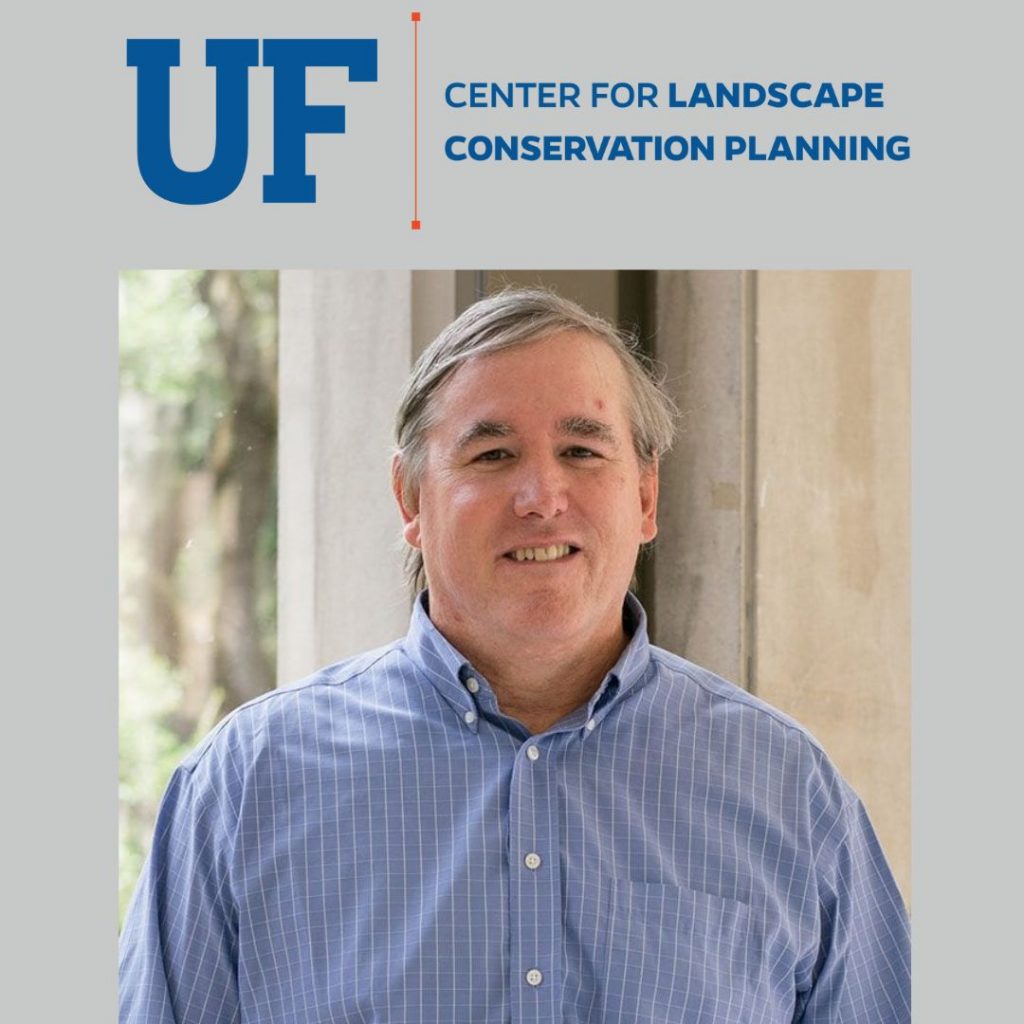University of Florida Center for Landscape Conservation Planning and Florida Wildlife Corridor Research Team Awarded 2025 ESA Sustainability Science Award

Tom Hoctor, Director of the University of Florida’s Center for Landscape Conservation, recently received the 2025 Ecological Society of America Sustainability Science Award alongside a research team focused on maintaining, monitoring, and expanding the Florida Wildlife Corridor.
The Sustainability Science Award recognizes the authors of the scholarly work that makes the greatest contribution to the emerging science of ecosystem and regional sustainability through the integration of ecological and social sciences. The award was given to this research team for their paper “Marshaling science to advance large landscape conservation,” which was published in the journal Conservation Science and Practice, and focuses on the deliberate action-based planning that is required when working to conserve large swaths of land like the Florida Wildlife Corridor.
The Florida Wildlife Corridor, one of the world’s most ambitious habitat connectivity projects, works to connect Florida lands and waterways to ensure state wildlife and humans are able to thrive alongside one another. The project combines roughly 18 million acres of contiguous wilderness and working lands to ensure the survival of Florida’s endangered species, strengthen resilience against intensifying storms, and protect the quality of the state’s waterways.
In their paper, the team revealed the tools and methods they utilized to map out the corridor and find the most efficient ways to conserve land and connect different sections of the state. They used innovative tools like the Florida Circuit Model, which simulates the movement of animals across the state based on land cover resistance in order to better understand the movements of natural wildlife and their seasonal habits.
They’ve also fostered significant relationships with landowners, government agencies, corporations, and nongovernmental organizations to promote the corridor and the science behind it. Working from an action-based scientific perspective and combining this with efforts to secure funding and partner with others in the land-use space has allowed the project to secure significant state funds for conservation efforts. This also resulted in the creation of the Florida Wildlife Corridor Act of 2021, which passed with unanimous support in the Florida legislature. Since the inception of this act in 2021, more than 317K acres of land have been approved for conservation.
By effectively communicating their research accomplishments, the team has ensured the practical application of their findings. This enables constituents and others working in this land management space to understand the corridor and the larger purpose it serves. This specific paper highlights three main approaches to conservation: “Documenting the Development Threat,” “Prioritizing the Corridor” and “Communicating and Convening Science.” The data they have gathered also help organizations and local governments make decisions on land-use that are backed by large amounts of data. It also helps to promote innovative development practices and influence decision making when planning conservation areas.
The team has made their impact with people a priority as well. Through efforts like educational outreach and workshops, they have helped to united stakeholders under a shared vision of sustainability.
Congratulations to Tom Hoctor and the rest of the team for this inspiring accomplishment!
Read more HERE.
Learn more about the UF Center for Landscape Conservation Planning.